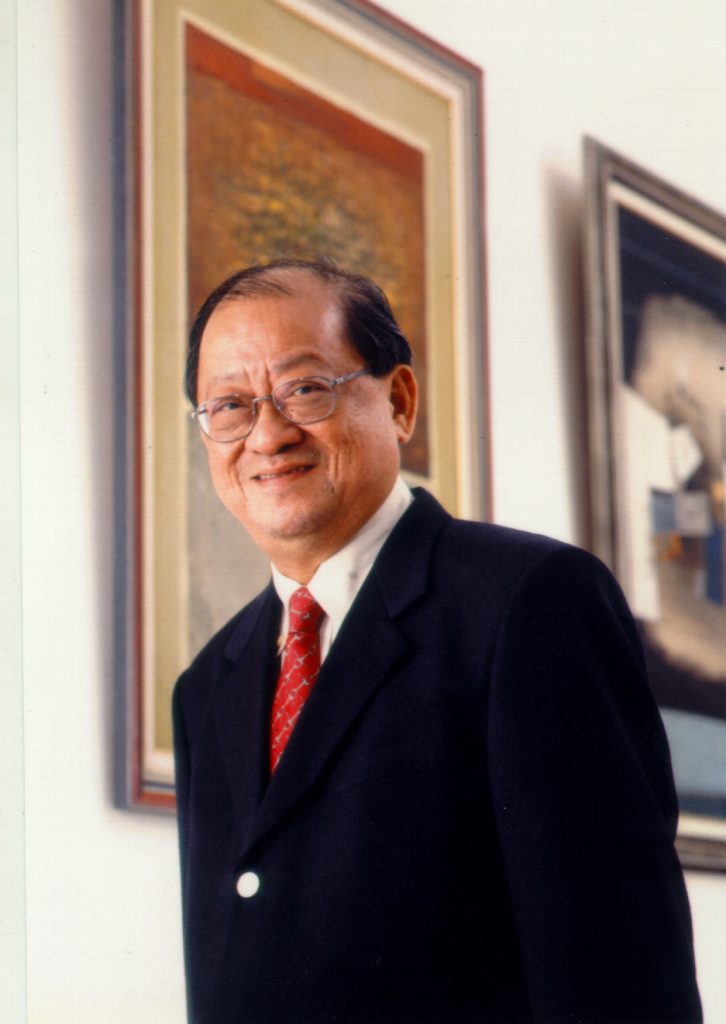An Interview with Prof K K Phua
Prof Phua Kok Khoo, Chairman and Editor-in-Chief, World Scientific Publishing Company (WSPC); Adjunct Professor, Department of Physics at both National University of Singapore and Nanyang Technological University; Founding Director, Institute of Advanced Studies, Nanyang Technological University (modelled on IAS Princeton, USA), shares with Physics Matters about establishing WSPC and as well as physics.
What was your motivation behind the setting up of World Scientific Publishing Company given that there were already other established scientific publishers in the 1980s?
For many years, there was no international scientific publishing house based in Asia. So this was one main reason we wanted to start a scientific publishing house headquartered in Asia. It is not European or American but really an Asian publishing house. We discussed with a few people like Professor Abdus Salam and Professor C N Yang. They all felt it was a very good idea. There was no international scientific publishing house in China and Japan due mainly due to a language barrier. But even in India, where English is a main language, there is not any.
We started from zero which made it not easy. The good thing about being in Singapore is that English is an official language here. It was easy for us to find staff who were good in English or were bilingual. We also had a lot of contacts—top physicists—in the world. I liked to connect Asian physicists to the international community. So in the 1960s, we organised a few very big conferences in Singapore which I initiated.
In about three decades, WSPC has established itself as the largest international scientific publisher in the Asia-Pacific region. How does WSPC achieve this in such a relatively short span of time?
I think the first important thing for us was to publish high-quality books that were as good as those published by Cambridge or Oxford University Press right at the beginning. We published books in the early period that were written by prominent scientists such as Professors Kerson Huang and S S Chern. We also have had close collaboration with the International Centre for Theoretical Physics (ICTP Trieste). Being an Asian publishing house, we need to connect with Asian scientists initially. Also, by offering quality services from production to marketing and competitive pricing, we convinced the world we could do a good or better job. As a result, we also become the exclusive publisher of the Nobel Lectures Series for many years.
How do you think the print industry is affected by electronic media especially in the past decade?
Most of our books and journals are available in both print and electronic versions. I don’t think there is any negative effect. They are different technology and format. At one stage, people feel that the print version will end but it is not true. There are people who like to read books, not only through iphone or ipad. Younger generation may prefer to read online but there are still some who like print. Our publication is mostly STEM (Science, Technology, Engineering, Mathematics) so the content is relatively heavy and readers may need more time to digest. They may still prefer something they can write on or highlight so I think the print version still has its market. We are also keen to put out publications that are bilingual.
Which are the current active research areas in physics worldwide?
I think there are a few main areas. One is particle, nuclear and quantum field theory and also astrophysics. The other is condensed matter—solid state and semiconductor, biophysics which are related to statistical mechanics and quantum theory. The third group is more geared towards the applied side: materials science, nanophysics and even energy.
Presently, your company employs about 450 staff worldwide in various positions. What are some qualities WSPC look out for when hiring graduates?
As this is a publishing industry, a good command of language is important. You must also have an interest in knowledge. This is a knowledge industry. I talk to my staff every day about new problems, research happening, important workshops and conferences, promising scientists and potential hot areas of research. As an example, Professor David J Thouless was invited to publish with WSPC for his works on topological phase transitions many years before he received his Nobel Prize in Physics in 2016. It is not only in physics but other fields of science, including medicine, that we strive for high quality works.
We need individuals who have an interest in learning new things. Being chairman of the board for Hwa Chong Institution for many years, I see many students who are good at exams. We try to encourage them to have broader interests too. This is what we want for our staff in the company. Another important aspect is for science graduates to be able to communicate with different people. Possessing good communication skill is important.
How well do you think physics graduates are positioned in today’s job market?
The majority of our science editors here have a science background. Physics graduates generally go into three types of jobs: teaching physics or mathematics, administration (government or multinational company with opportunity to rise to senior positions) and a big group also retrains in engineering or computing. In the US, quite a number have gone to the Wall Street. Physics graduates can also work in the banking industry. Physics training is very general and basically you can do anything. I think training to solve problems is most important. Nowadays people like to talk about creativity and one can learn creativity through physics.
Having established a successful business, as you look back, what is one life lesson you like to share with us.
Keep learning to improve yourselves. Know how to interact with different levels of people. Being humble is an important way of life we should all have.

